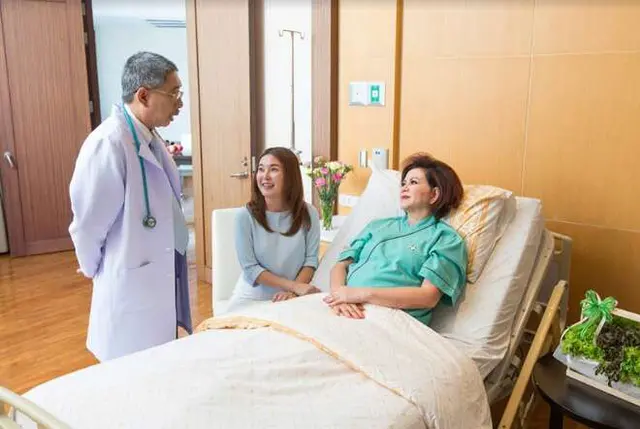By APD writer Alice
Thailand's medical tourism industry is targeting huge revenues from China's wealthy and super-rich class by opening its doors to foreign tourists seeking medical treatment from July.
Thailand began easing border controls in July, allowing medical tourists, foreign spouses of Thai citizens or those with work permits to enter the country. Meanwhile, leisure tourism is still banned because the government is still afraid of imported COVID-19 cases.
About 1,200 people from 34 nationalities applied to enter Thailand for medical programmes which were expected to start in July. Together with them were 1,500 other family members. "People like to come here to conduct plastic surgeries on the eyes and nose, for instance. And our dental treatments are relatively cheaper, too," said Taweesilp Visanuyothin, spokesman for Thailand's coronavirus task force.
Patients come from countries like China, Vietnam, Myanmar, Cambodia, Saudi Arabia and the United Arab Emirates (UAE). But Chinese tourists, including couples seeking IVF, stand out in number. This is the most important revenue in this field of Thailand. Chinese couples spend about $8 billion a year doing IVF, industry experts estimate. Of these, more than $1 billion is spent abroad.
Thailand is the main destination for Chinese tourists doing IVF overseas due to cheap prices, at about 400,000 - 800,000 baht (12,900-25,800 USD). About half of this amount is spent on IVF-related expenses, the remainder is for health care and tours.
Currently only 460 hospitals in China are licensed to perform IVF, failing to meet the needs of infertile couples. Moreover, families prefer to do IVF in Thailand because they can choose the sex of the fetus.
However, this time Thai people are still not excited about opening the border for foreign tourists because they are afraid of the second wave of coronavirus infection. Therefore, medical travelers must undergo strict isolation before entering Thailand.
Especially, Chinese visitors must pay at least 700,000 baht. This package includes a 28-day hotel charge and visa fee for three accompanying family members, excluding air tickets.
As of July 9, Thailand had 85 hospitals and clinics registering to receive "visitors - patients". Private hospitals in Thailand have launched different packages or programmes to welcome Chinese tourists for treatment after the pandemic. Of which, Phyathai 3 is expected to welcome the first medical tourist delegation in August.
Bangkok Dusit Medical Services, the largest private hospital chain in Thailand, signed a contract with China's Ping An Insurance Group in late June, targeting China's super-rich. Insurance policies include remote consultation, visa application, interpretation, transportation and VIP care in hotel rooms.
Bangkok Dusit expects to welcome 4,000 medical visitors in the next few years. It believes that the cooperation with Ping An will help bring in sales of up to 2 billion baht (nearly 1.5 million USD) this year, provided that international tourism returns to normal in the fourth quarter of this year.
This chain has 49 hospitals including 8,000 beds nationwide. Their sales last year reached 83.7 billion baht, of which up to 70% came from Thai patients. The Chinese market currently accounts for only 1-2% of the foreign arrivals for treatment.
(ASIA PACIFIC DAILY)
 简体中文
简体中文

